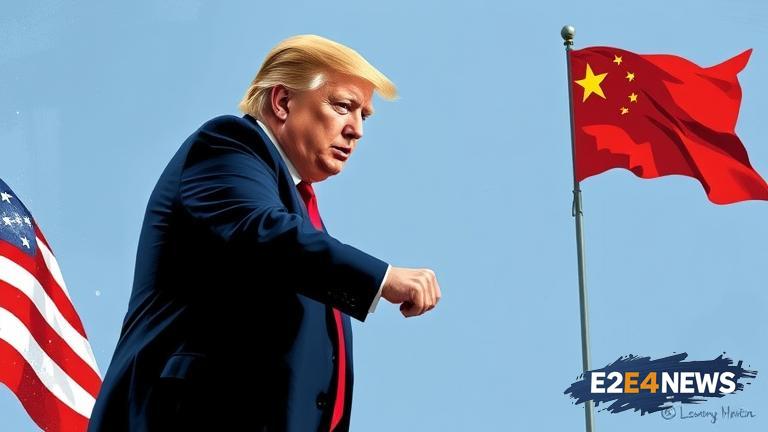The complex and often tumultuous relationship between the United States and China has been a focal point of international diplomacy and economic policy for years. Recently, former US President Donald Trump has voiced his aspirations for fostering a strong and cooperative relationship between Washington and Beijing. This statement comes at a time when tensions between the two global powers are running high, with issues such as trade imbalances, security concerns, and technological competition dominating the headlines. Trump’s comments, while seemingly conciliatory, must be considered in the context of his previous stance on China, which has been marked by a mix of criticism and negotiation. During his presidency, Trump was known for imposing tariffs on Chinese goods and engaging in a trade war that had significant implications for the global economy. Despite these actions, Trump has consistently expressed a desire to establish a personal rapport with Chinese President Xi Jinping, suggesting that he believes a strong personal relationship can help navigate the complexities of US-China relations. The importance of US-China relations cannot be overstated, given the two countries’ status as the world’s largest and second-largest economies, respectively. Their interactions have a profound impact on global trade, security, and economic stability. However, challenges such as China’s human rights record, its assertive military posture in the South China Sea, and concerns over intellectual property theft and technological espionage continue to strain relations. The situation is further complicated by the role of other countries, such as South Korea, which finds itself caught between its alliance with the US and its significant economic ties with China. As the international community watches the evolution of US-China relations, there is a growing recognition of the need for a balanced approach that addresses both the competitive and cooperative aspects of the relationship. This includes efforts to promote fair trade practices, enhance security dialogue, and collaborate on global challenges such as climate change and pandemics. Despite the challenges, there are also opportunities for cooperation, particularly in areas like trade and investment, where mutual benefits can be realized. The future trajectory of US-China relations will depend on a variety of factors, including the policies of the current US administration, China’s internal political dynamics, and the responses of other nations to the evolving geopolitical landscape. As Trump and other leaders navigate these complex issues, their actions will be closely watched for signs of either escalating tensions or a move towards greater cooperation and understanding. The path forward will require careful diplomacy, a deep understanding of the interests and concerns of all parties involved, and a commitment to finding solutions that promote peace, stability, and prosperity for all. In conclusion, the quest for strong US-China ties, as expressed by Trump, reflects the broader recognition of the importance of this relationship for global stability and economic growth. However, achieving this goal will require addressing the significant challenges that currently characterize the relationship, through a combination of dialogue, cooperation, and a willingness to find common ground. The world will be watching closely as these dynamics unfold, aware that the future of US-China relations has profound implications for international relations, global governance, and the well-being of nations around the world. Furthermore, the role of international institutions and multilateral agreements will be crucial in shaping the future of US-China relations, as these provide frameworks for cooperation and dispute resolution. The interplay between national interests, global governance, and the actions of individual leaders will ultimately determine the course of this critical relationship. As such, ongoing analysis and dialogue are essential for understanding the complexities and nuances of US-China relations, and for identifying pathways towards a more stable and cooperative future. The implications of US-China relations extend far beyond the bilateral context, influencing regional and global security, economic patterns, and environmental sustainability. Therefore, a comprehensive approach that considers these broader implications is necessary for developing effective policies and strategies. This includes engaging with a wide range of stakeholders, from governments and businesses to civil society and international organizations, to foster a deeper understanding of the issues at stake and to build support for cooperative solutions. Ultimately, the development of strong, constructive US-China relations will depend on the ability of leaders to balance competing interests, to manage tensions, and to identify and pursue opportunities for mutual benefit. By doing so, they can help to create a more stable and prosperous world, where the interests of all nations can be advanced through cooperation and diplomacy. The challenge is significant, but the potential rewards are substantial, making the pursuit of strong US-China ties a worthwhile and important goal. As the global community moves forward, it is essential to prioritize dialogue, cooperation, and the pursuit of common interests, recognizing that the future of US-China relations will have far-reaching consequences for generations to come.
